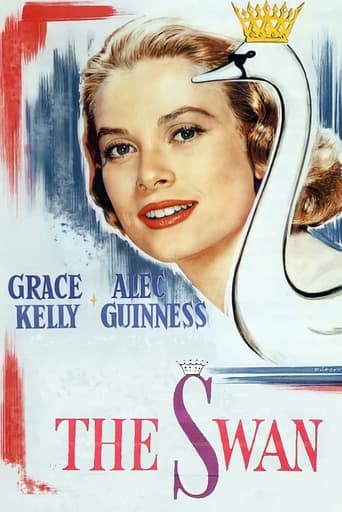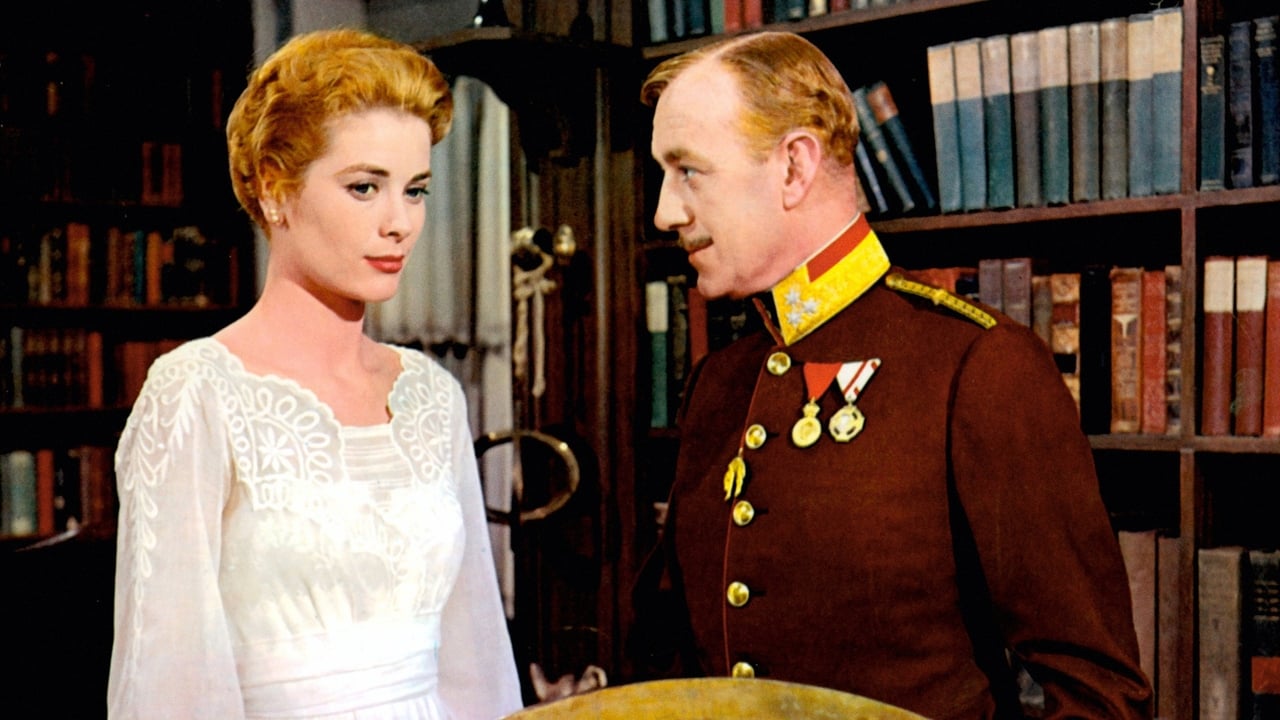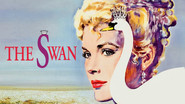duanyfinancial
The Swan was the last vehicle for Oscar-winner Grace Kelly, it would be her swan song, if you pardon the pun, and it was one of her best. This comedy of manners, about Royals, was set at the end of La Belle Epoque(1870-1914), and it evoked the values of a bygone era in 1956, when it was made, yet it also encompassed everyday values of family, and romance. It also exemplified class distinction, and the beauty of first love. The acting is superb by all, and the direction of Charles Vidor(Gilda), and production by Dore Schary, was magnificent. This movie keeps you on the edge of your seat throughout, and most important of all, this movie will bring out the rarest of emotions, it will make you cry, and laugh, at the same time.
Phil Conners
"The Swan" is in that relatively small niche of films in which duty or honor trump love.Obvious examples of the duty/honor-trump-love genre include "Roman Holiday," "The Prisoner of Zenda," "Casablanca," "The Man Who Shot Liberty Valence," "Shakespeare in Love," "Interstellar," (arguably) "Camelot," and some superhero stories (especially Superman). If you like these movies, you will probably like "The Swan." (OK, I'm not too fond of the molasses "Camelot," but I do like the others.)Here is Why:(Skip down to the next section if you're not into movie pedantry – I couldn't resist :-).This genre involves a triangle consisting of at least one worthy hero, a worthy heroine, a clear duty, and a tension involving that duty and love between the hero and heroine. However, the hero or the heroine ends up yielding to the duty rather than seizing the love (a variant is "Liberty Valence," where, instead, perhaps the heroine does not end up with the hero she should). The hero/heroine love need not be romantic, e.g., "Interstellar" involves father- daughter love.Frequently, a fourth element is added in the form of a second, less sympathetic, suitor for the heroine, forming a more traditional romantic triangle. The second suitor is usually the proxy of the duty, i.e., the duty requires the heroine to choose the second suitor. ("The Swan" falls into this case.)Also typically, the hero makes the noble decision to not take the prize of the heroine (exceptions include "Roman Holiday," where the heroine makes the decision, "Shakespeare in Love," where the Queen commands it, and "Liberty Valence" where the John Wayne character makes the decision). The great cause requiring the noble sacrifice can be family honor (as in "The Swan"), patriotism, humanity, or religion, among others.To be clear, there are many tragic themes that do not fall into the duty/honor-trump love genre. These other themes are often sorrowful, but just not do carry the same emotional undertones. Hence, I do not include happy-ending duty/honor-vs-love stories such as "The Four Feathers;" death-for-love sacrifice stories, such as "Titanic," "A Star is Born," "A Tale of Two Cities," or "Five Graves to Cairo," (a relatively common theme); other sacrificial stories such as "Gypsy;" or sacrificial subplots within stories, of which there are gazillions (think "Gone With the Wind" or many war films). I also discard deferred-gratification-with-hope stories such as "The Prince and the Showgirl" or "Hollywood Canteen." Further, the genre is exactly the opposite of love-trumps-duty stories such as "Romeo and Juliet" and its dozens of derivatives, and "Love Story" and its many wrong-side-of-the-tracks variants, in which characters defy duty to obtain love, with the inference that the duty is improper or even offensive.Films in the duty/honor-trump-love category tend to have sad and somewhat ambiguous endings, and "The Swan" fits right into that mold. Truly great and memorable films in the duty/honor-trump-love genre tend to be high tension, powerfully emotional, passionate, moving, and intense, packing a demonstrative wallop and encouraging a wet eye or even a tear. Unfortunately, in this respect, "The Swan" disappoints. It does not drive the poignant punch of most of the examples above. The letdown in "The Swan" is certainly not due to the cast, the costumes, the pacing, or the sets, all of which are wonderfully first rate and make the film worth watching. Grace Kelly alone makes this film worthwhile. You will be entertained, you will be hopeful, you will be charmed -- but comes the placard that says "The End," you will be wondering if someone forgot the last reel.The problem is the story and script, in which the Grace Kelly character spends only a tiny sliver of the film falling, without much motivation, for the Louis Jourdan character. Contrast the significant amount of time "Roman Holiday" spends building the deep connection between the Audrey Hepburn and Gregory Peck characters. By the end of "Roman Holiday," the audience is so invested in the pair, that their sacrifice, while understandable, is nevertheless heartrending. Similarly, consider the number of scenes in "Casablanca" developing Humphrey Bogart's and Ingrid Bergman's characters. On the other hand, the love of Grace Kelly's princess with the Professor comes across more as shallow puppy love, a brief and contrived infatuation. The audience is simply not upset with the turn of events. The viewer observes the events from afar but does not live it.Footnote:BTW, when folks say "they don't make films like that anymore," they are correct about this genre. This category has become even rarer since the 1960s. (Ok, a few remakes here and there, and "Shakespeare in Love," and "Interstellar," and some "Superman" flicks, and a few others). The bulk of the offerings seem to originate in the 1920s through the 1940s.Perhaps this rarity can be explained either by notions of duty and honor being less strong or popular post-WWII, or maybe by "downer" movies not generating the required revenues. (I tend to lean towards the first explanation; "Titanic," "Shakespeare," and "Interstellar" demonstrate that sad and even tragic endings can be profitable.)A further observation is that movies in this genre are almost always period or other-world pieces, never in real modernity (with the possible exception of "Roman Holiday," and even that is fairy-tale flavored). The message is that this is the selfish "Me" generation, chivalry and nobility are dead, and nothing in 21st century western civilization can trump love. Even Superman comics have given in (though not yet the films – I predict they will). Simply, in our day and age, we are expected to have no duties, loyalties, or honor greater than love. Perhaps this is why, when we see modern sad films, they are usually "Romeo and Juliet" or "Love Story" or "Titanic" themed films.Watch this film – it is enjoyable, though not great, and its theme is less common than you think.
darynkentd
I can't give it the "awful" rating because it's beautiful filmed and all the acting is splendid. It's a gorgeous film, and it is simply awful. The woman has had no life of her own, she's been ruled by her mother, done what her mother demanded, and never let herself feel. Finally, the situation between the tutor and the Prince she is supposed to marry, becomes explosive and in that explosion she realizes her true feelings -- more than that: she realizes she HAS feelings. And of course she's a princess and she's going to marry the Prince, it doesn't matter who she loves. But that happens in Roman Holiday and the princess is going to feel it and love the man involved for the rest of her life. The ending of this film with Alec Guinness saying she's the swan gliding through life, having no feelings and he's the same, playing their roles. Oh god, it's horrible. How can anyone call that romantic???? It's a total denial of life.
adamshl
Molnar needs to be done with style, taste and wit--all of which qualities this dramatization has. The cast is stellar, with the future Princess Grace surrounded by the likes of Alec Guiness, Louis Jourdan, Estelle Winwood, and Jessie Royce Landis, to name a few.The pace is very regal and leisurely, I'd say in "Adagio tempo," appropriate to the delicate nature of the royal estate. Bronislau Kaper's score captures the distinguished atmosphere, and the set decor is done with great care.Charles Vidor's direction is dignified and the character interaction has genuine charm. I greatly respect MGM for creating so noble a work, and find the widescreen DVD most appealing.Fine work done by all.



 AD
AD




